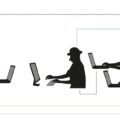How brands can navigate growth opportunities during COVID-19 crisis: opinion by Devan Bhalla

Consumers and Brands have been enormously impacted by the COVID-19 crisis. Now, there are directives to a stay-at-home and fundamental transformation in demand for specific categories of products. Moreover, lack of channels of distribution and supply chain constraints to particular companies has disrupted habitual behaviors.
We connected with an emerging brand leader, Devan Bhalla, Deputy General Manager Brand & Growth, Amar Ujala, and discussed how brands could navigate growth opportunities amid the worst pandemic we’ve seen in recent decades. “The shift is crucial for brands, specifically market leaders, in their domain. This is because humans are misers cognitively – they use psychological shortcuts in guiding their decisions and judgments,” elucidated Devan.
“The core of effective marketing lies in how the customer value is conceived, communicated, and delivered. This is highly relevant in the present crisis. The pathway to success for brands is in identifying the customer’s perception of value in their new purchasing habits,” added Devan Bhalla.
Brand Messaging – Solutions/Safety over Products
Marketers must understand that today the markets are more receptive to solutions than products. Devan shared that, “the current prospect is in how brands can stand out for their customers via effective messaging. Brands that prove pertinent to the assurance, security, and safety concerns of the customer will get a competitive foothold.”
A pharmacy chain in Mumbai recently witnessed a considerable decline in customers as one of its cashiers tested positive for COVID-19. The limelight on delivery safety was again highlighted by a Zomato agent for restaurant delivery in Delhi. The agent tested positive and had processed orders for some of its customers. This has altered the consumer opinion, and the buying preference is now driven not by price concession, but by safety, handiness, and transparency.
Capgemini revealed that 75% of the consumers in India who participated in its survey said that they would buy from retailers who adopt safety norms at stores.
“Small and mid-tier brands should ensure appropriate tagging of attributes for their products used by the consumers on the online platforms or advertisements,” stated Devan Bhalla. It can ensure a higher ranking for such products in search results as well as better recall proposition for customers.
Access and reach, over the place
Empty store shelves and product shortages have dominated headlines and social media. Devan explained, “Many firms are redesigning their distribution and supply chain capabilities for fulfilling demand in the times of social distancing. The market availability of products will continue to be the focus. However, a long-term and broader strategy for ‘place’ will require marketers to consider an Omni-channel approach. This includes all prospective points and outlets for distribution where customers can get exposure, evaluate, and buy an offering.”
The result is that diverse FMCG companies in India functioning at minimal capacity have teamed up with online players in varied industries. This is for working on logistical solutions providing essential goods to the Indian customers.
The latest partnerships include Marico, consumer goods firm collaborating with both Zomato and Swiggy, food delivery firms. ITC – India Tobacco Company teamed up with Domino’s while Big Bazaar partnered with both Scootsy – food delivery and Rapido – bike taxi. Spencer’s Retail collaborated with Scootsy, Rapido, and Uber India.
Value, over the price
The new economic ambiance is likely to be challenging for many top brands whose structures for cost are reliant and their ability to command a premium price. In simple terms, some of the appeals of purchasing name brands have been lost in the times of category buying versus brand buying. “In several ways, the competitive landscape has been leveled by COVID-19 for smaller brands. All leading and mid-tier brands have to change to the direct-to-consumer strategy in the post-COVID times,” stated Devan Bhalla.
DTC brands will witness the increased competition. Factors that most of them never imagined to be considered by the Indian consumers have become significant for them. For instance, the clientele of the eco-friendly brand BECO come under the ‘A’ and ‘B’ socio-economic classification groups. The price is not a factor for its consumers. It is all about obtaining the right delivery experience and the correct product at the correct time.
“Brand leaders must leverage the present crisis into an opportunity for framing unique packaging solutions as a part of the highly required strategy for sustainable future” explained Devan Bhalla.
The future course
Effective and focused Content Marketing will be a very powerful tool for Brands to stay in touch with their customers. It will support their customers emotionally while boosting the pipeline generation. Undoubtedly, the Brands which best acclimatize and innovate in the present crisis will emerge on the top.
“Brands that devote time to understanding the shift in consumer attitudes and behavior will create innovative opportunities. These will be focused on creating and delivering new values. Nascent buying patterns for their brands can be turned into sustained buying behavior in the post-crisis period,” concluded Devan Bhalla.
Team MyIndiaMyglory
Latest posts by Team MyIndiaMyglory (see all)
- BAIC Exhibition: Confluence of Interiors, Architecture, and Construction Industry - October 23, 2024
- Temple Treasures: Evolution of Temples from Ancient to Present - October 23, 2024
- Akal Bodhan: Ram’s Invocation of Durga during War against Ravan - October 23, 2024






